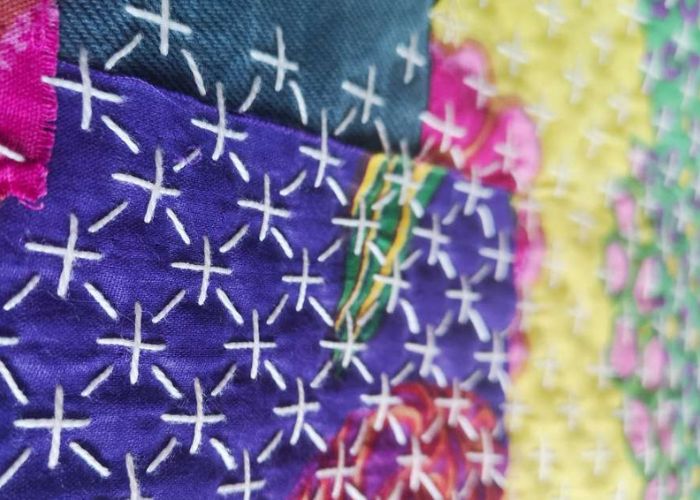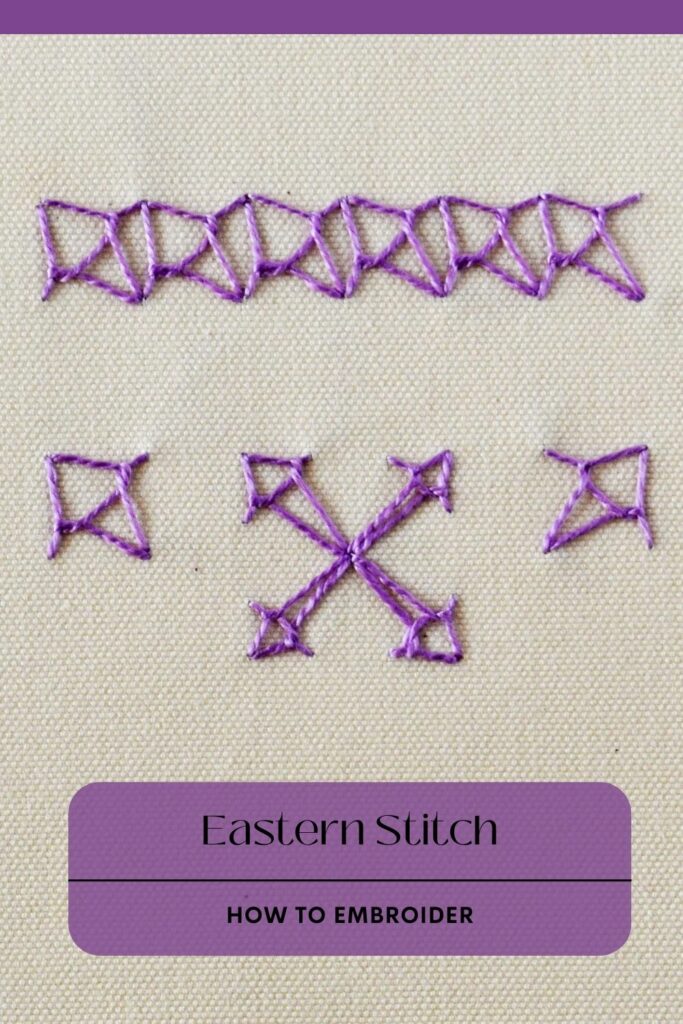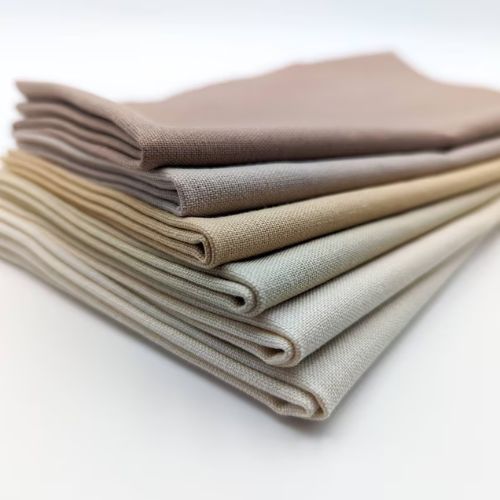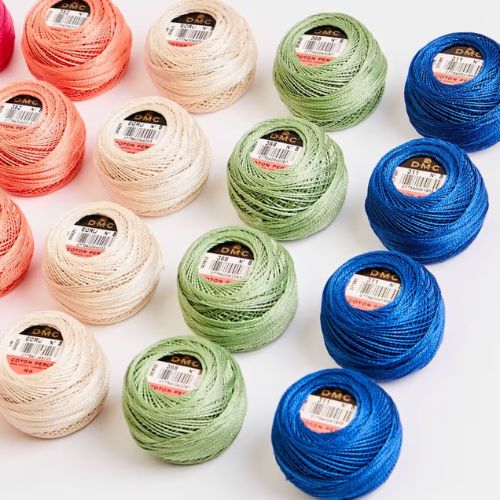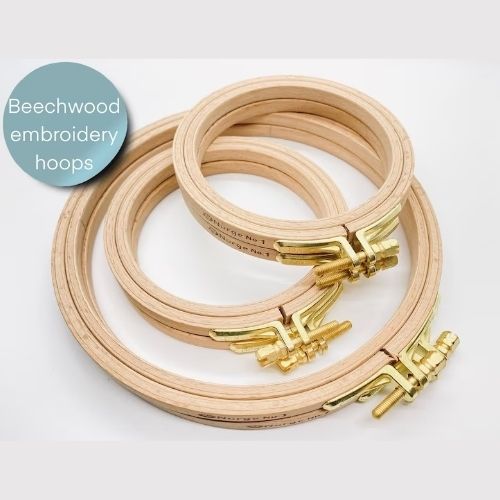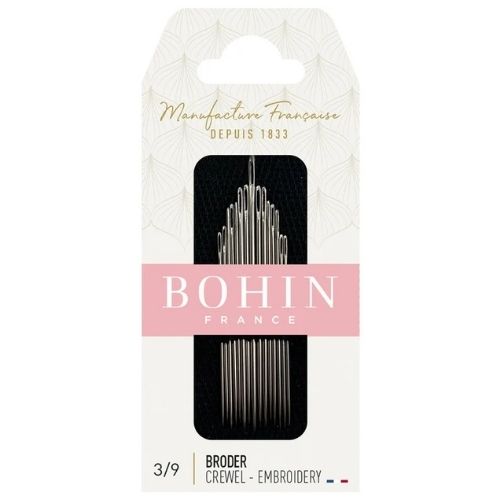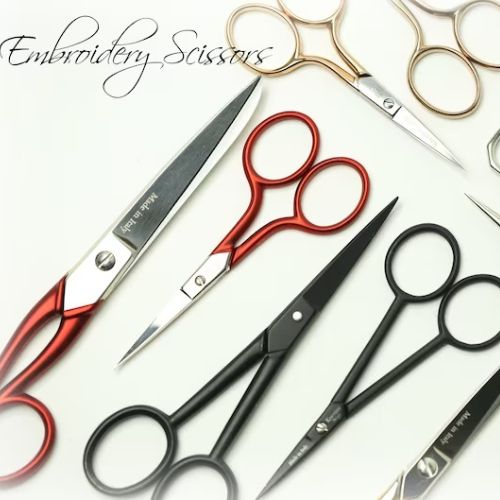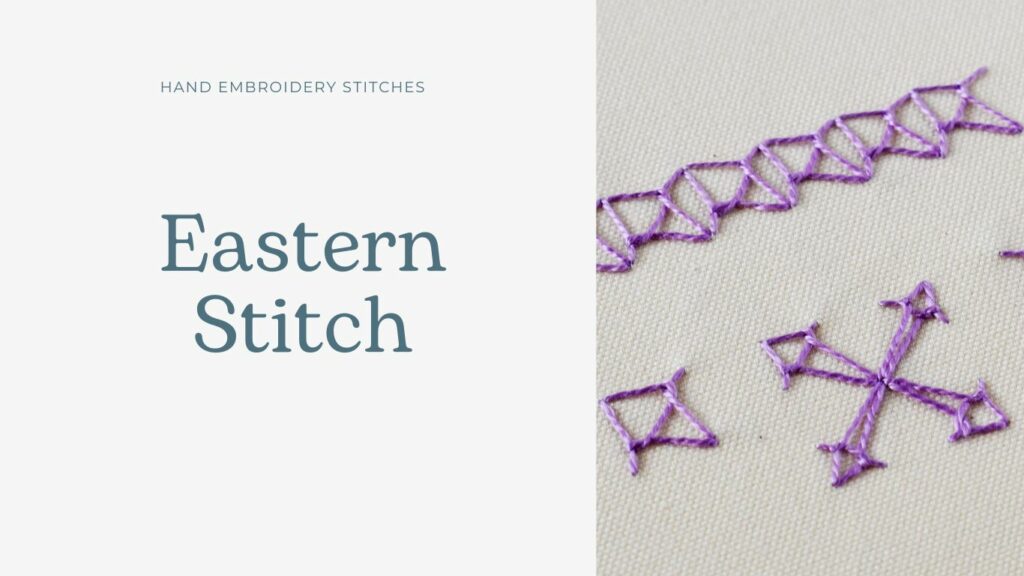
Eastern Stitch
Eastern Stitch is traditionally a canvas stitch embroidered on counted thread fabrics in canvas work. Two straight and two buttonhole stitches form a decorative motive that takes up the square space. You can work this stitch on non-counted fabrics, too—just draw the grid to fill with square stitches.
The lacing technique of this stitch is similar to Sorbello Stitch and Palestrina Stitch, so I added this technique to the Palestrina Stitch family.
Other names of the stitch
Eastern stitch can also be called Egyptian buttonhole or Eastern buttonhole stitch.
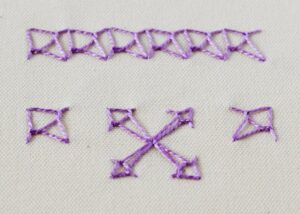
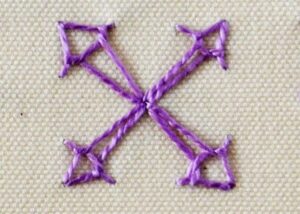
Applications of the Eastern Stitch
Traditionally, Eastern Stitch is used for textural filling – the rows of Eastern Stitch are placed closely to fully cover the fabric’s surface.
In modern surface embroidery, we can use this technique to create decorative borders, detached motives, or decorative elements by grouping detached Eastern Stitches. You can combine these stitches with beads or other detached stitches like French knots or Lazy Daisies.
The Eastern Stitch mainly works on straight lines, but you can adjust the lengths of the straight stitches to make them follow slight curves.
More stitches from the Palestrina Stitch family
- Palestrina Stitch
- Basque Knot
- Reversed Palestrina Stitch
Learn how to embroider Eastern Stitch
Follow the step-by-step tutorial with detailed photos below, and you will learn the Eastern Stitch quickly. If you are a visual learner, watch a video lesson in the tutorial or on the Practical Embroidery YouTube channel to learn this hand embroidery stitch faster.
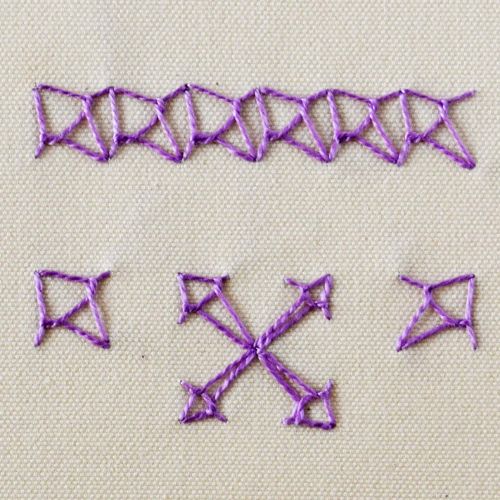
How to embroider Eastern Stitch
Step-by-step hand embroidery tutorial
Instructions
1. Draw the square grid for your stitches if you use a tight weave fabric (like I do). Mine is 1×1 cm, but you can make it smaller and more delicate.
2. First, make a straight stitch from the left to the right.
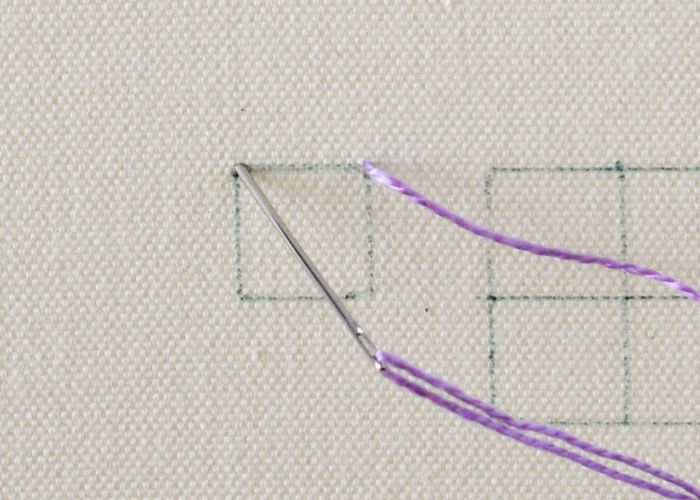
3. Make one more straight stitch to form a 90-degree angle.
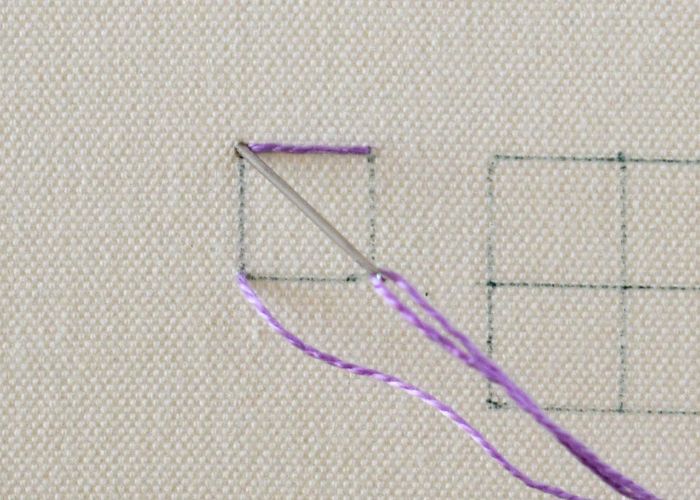
4. Take the needle up at the opposite angle—bottom right. Pass the needle under the vertical stitch. The movement is from outside the square towards the inside and from top to bottom. It will form a loop around the straight stitch.
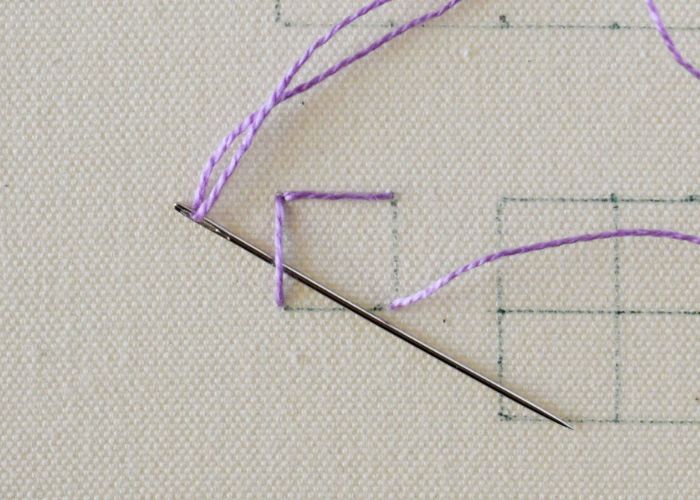
5. Slide the needle under the horizontal stitch and make one more loop.
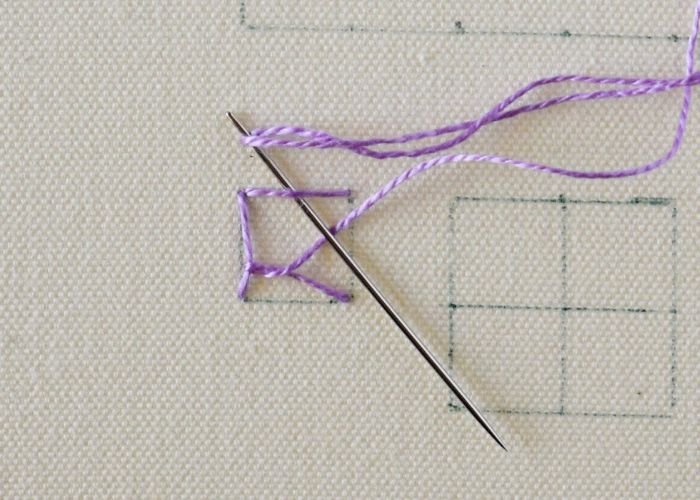
6. Push the needle down at the bottom right corner.
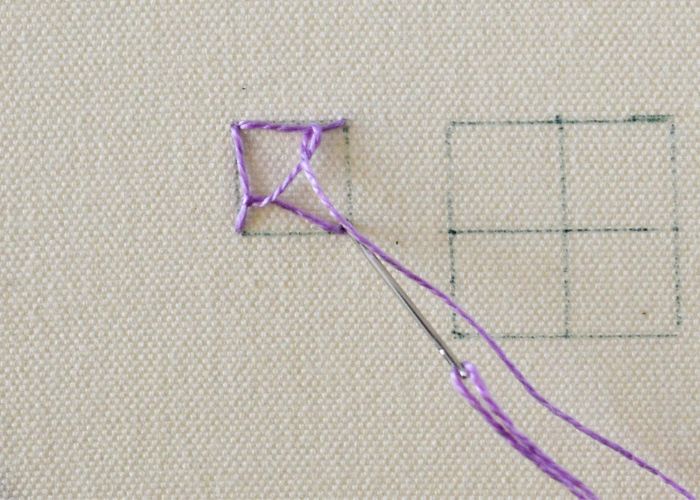
7. The first Eastern Stitch is done. You can continue stitching and add the stitches in the row to form a line or multiple lines for filling.
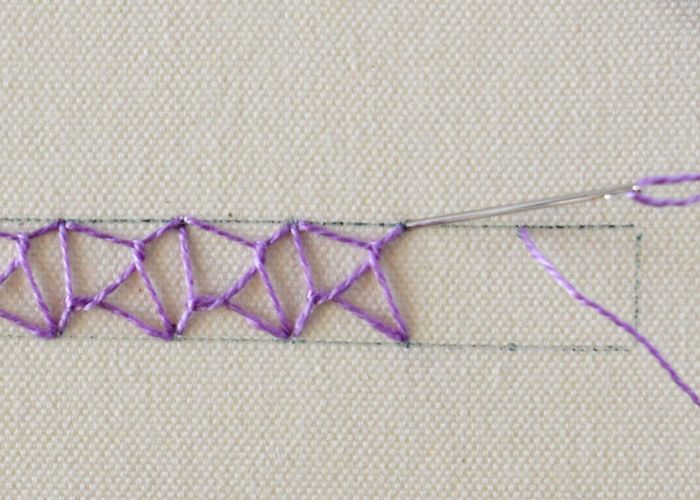
8. Also, you can position multiple Eastern Stitches in groups to create decorative motives like a cross.
Video tutorial
Tools and materials I used for this sampler
Disclaimer. To cover the cost of creating free embroidery patterns and video tutorials for this blog, I do sometimes link to products. Please assume these links are affiliate links. If you choose to buy through my links then THANK YOU – it will make it possible for me to keep doing this.
What’s next?
If you’re in the mood to explore more hand embroidery stitches, check out the Stitches and Techniques page for the list of other fantastic stitches available on my blog. From timeless classics to modern twists, a whole world of stitches is waiting for you to explore and master. So, grab your hoop and needle, and let’s stitch our way to creative bliss!
Don’t miss a thing!
Follow me on YouTube, Instagram, Facebook, and Pinterest. Or why not subscribe to Practical Embroidery newsletter and get embroidery tips straight to your inbox every few weeks?
Need More Guidance?
The top 10 hand embroidery stitches to learn is a free online course created for beginners.
